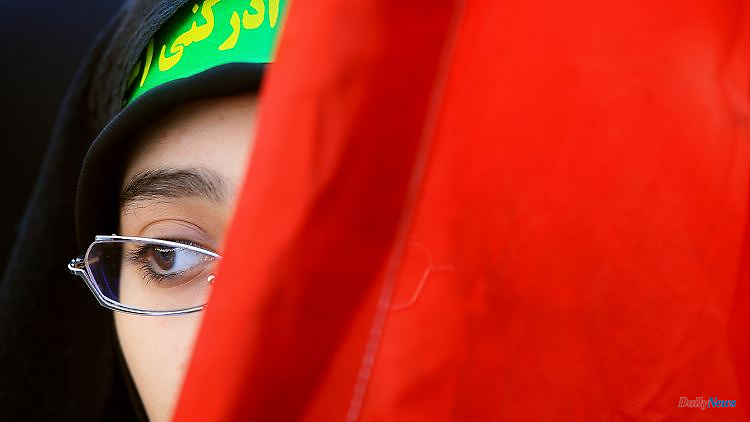Dizziness, nausea and shortness of breath: these are the symptoms that Iranian girls suffer from when they are poisoned in their schools. There have been hundreds of these attacks since November. The government sees religious fanatics at work who want to ban education for women.
"When the smell spread, everyone immediately understood what it was about and ran out of the classroom." The dramatic scene, which an eighth grader described to the Iranian newspaper Shargh, describes one of the most recent cases of mysterious poisoning in Iran's schools. Parents are stunned, worried and angry. There is still no official explanation. Hundreds of students in dozens of schools are now affected, as the authorities recently announced.
The first cases were reported as early as late November, when protests in Iran were in full swing. Initially only a few girls' schools in the Shiite stronghold of Qom were affected, but in the past few days more and more cases have become known in other parts of the country. Many girls were taken to hospitals. Now the wave of poisoning has also reached the capital, Tehran.
Videos from the newspaper "Shargh" showed ambulances and fire engines in front of a school in the east of the metropolis. The poisoning wave has been the dominant topic in the Iranian media for several days. Cases were reported by dozens of schools on Wednesday alone. Little is known about the background so far, at the same time there is a lot of speculation. But the symptoms are always the same: dizziness, nausea and shortness of breath.
Those affected reported, among other things, hissing noises in the classrooms and the smell of sulfur. Iranian doctors therefore bet on poison gases. Politicians were hesitant at first, then MPs announced a shocking realization: the attacks were targeted in schools. It became known from official circles that the government suspects extremist religious groups to be behind the wave of poisoning.
After the Ministry of Health had initially dealt with the cases, the arch-conservative President Ebrahim Raisi also got involved. As during the most recent wave of protests, he blamed the "enemies of Iran" for the situation. They wanted to spread fear and terror. Little credence has been given to this explanation in the past. For months, Raisi's government has been under pressure alongside the clerical leadership.
The women's protests last fall plunged the political leadership into the worst crisis in decades, and the difficult economic situation is also a source of great concern for many. There were also reactions in Germany. Foreign Minister Annalena Baerbock called for complete clarification. The reports are shocking, the minister wrote on Twitter. "Girls must be able to go to school without fear."
That is nothing less than their human right. A reaction from Tehran followed promptly. Foreign Office spokesman Nasser Kanaani described Baerbock's concerns as hypocritical. The wave of poisoning is still being clarified. On social media, some critics speculated that the poisoning was revenge on the schoolgirls for their fall protest. The majority of young girls and women took part in the demonstrations against the repressive policies. Iran's Deputy Health Minister Junes Panahi expressed suspicion that some groups want girls' schools to be closed.
A mother in Qom said: "They want the girls to stop going to school, as they do with the Taliban." First they started in the Shiite stronghold, then in the rest of the country. "Why aren't there any police investigations?" complains the mother.












